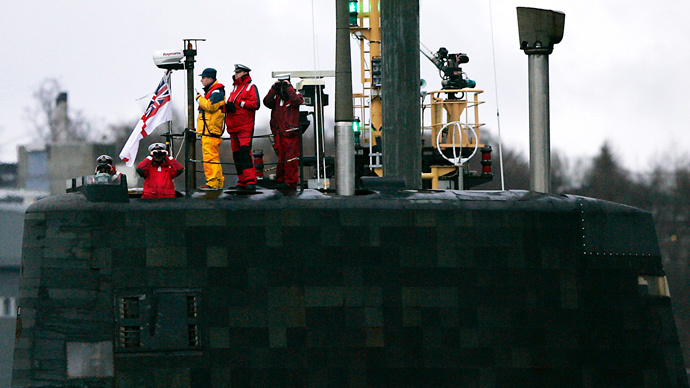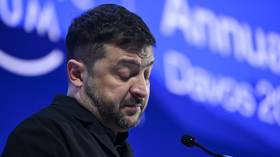‘Strategic nuclear weapons have no military use’ – British general

Nuclear weapons are outdated and the British government only wants to replace Trident to keep up with other nuclear powers, according to a former Gulf War commander.
Quoted in a new report, Major General Patrick Cordingley, who commanded UK forced in the First Gulf War, argued “strategic nuclear weapons have no military use.”
“It would seem the government wishes to replace Trident simply to remain a nuclear power alongside the other four permanent members of the UN Security Council.
“This is misguided and flies in the face of public opinion; we have more to offer than nuclear bombs.”
The report by the Nuclear Information Service and the Nuclear Education Trust, ‘British military attitudes to nuclear weapons and disarmament,’ offers a major insight into military thinking on Trident.
READ MORE: Discharged Trident whistleblower rebukes Royal Navy ‘spin’
The report found that while a majority of former military personnel interviewed support the replacement of Trident, that view is by no means unanimous. Many are expressing concerns about the cost of nuclear weapons and their use as political rather than defensive tools.
A number of interviewees downplayed concerns over the safety of nuclear weapons, a position which is again not unanimous across the armed forces.
Nuclear whistleblower William McNeilly was recently discharged from the Royal Navy after raising safety and security concerns in an extensive dossier he published online in May.
After his discharge, NcNeilly published a fresh nine-page document rebuking what he called naval “spin doctors” over their response to his findings.
“It is shocking that some people in a military force can be more concerned about public image than public safety,” he said.
In his original dossier, McNeilly raised up to 30 issues regarding nuclear weapons safety and base security.
The Navy immediately claimed McNeilly’s allegations were “subjective and unsubstantiated” and “factually incorrect or the result of misunderstanding or partial understanding.”












